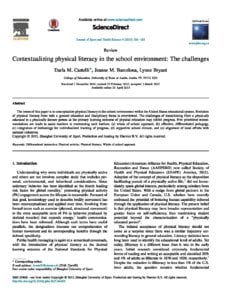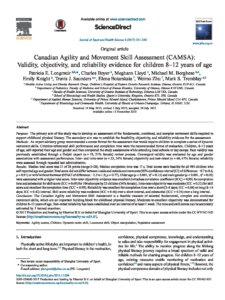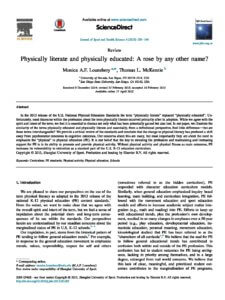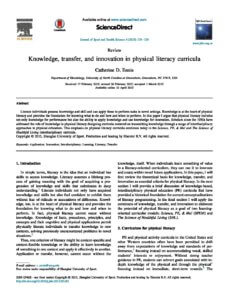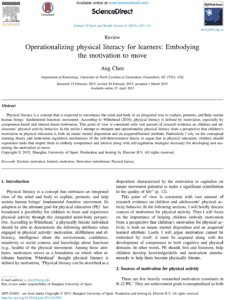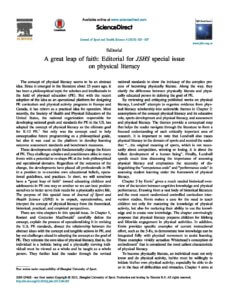-
Conceptualising physical literacy in the school environment: The challenges
Abstract The intent of this paper is to conceptualise physical literacy in the school environment within the United States educational system. Evolution of physical literacy… -
Canadian Agility and Movement Skill Assessment (CAMSA): Validity, objectivity, and reliability evidence for children 8–12 years of age
Abstract Purpose The primary aim of this study was to develop an assessment of the fundamental, combined, and complex movement skills required to support childhood… -
Physically literate and physically educated: A rose by any other name?
Abstract In the 2013 release of the U.S. National Physical Education Standards the term “physically literate” replaced “physically educated”. Unfortunately, most discourse within the profession… -
Knowledge, transfer, and innovation in physical literacy curricula
Abstract Literate individuals possess knowledge and skill and can apply these to perform tasks in novel settings. Knowledge is at the heart of physical literacy… -
Operationalizing physical literacy for learners: Embodying the motivation to move
Abstract Physical literacy is a concept that is expected to encompass the mind and body in an integrated way to explain, promote, and help sustain… -
Journal of Sport and Health Science (JSHS) – Special issue on physical literacy
Introduction The concept of physical literacy seems to be an abstract idea. Since it emerged in the literature about 25 years ago, it has been…


